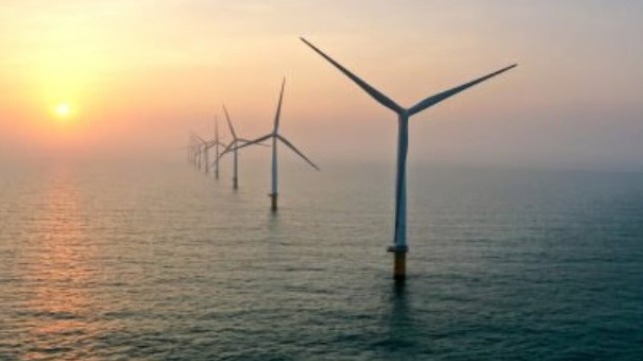Avangrid Walks Away From Commonwealth Wind Contracts, Citing Inflation

Spanish renewables developer Avangrid has announced that it is seeking to walk away from the current contracts for the Commonwealth Wind project planned for Massachusetts, saying that after months of negotiations the project is not economically viable in its current form. After two months of back and forth with the state and regulators, the company made a filing on December 16 proposing that the project be rebid in a competitive solicitation scheduled for April 2023.
“Despite unprecedented challenges in the global economy in the form of supply chain disruptions, historic levels of inflation, and rising interest rates, Avangrid has engaged in good-faith and productive discussions with Massachusetts state officials regarding these challenges and the need to restore the project to economic viability,” the company wrote in its public statement. “To advance this project as expeditiously as possible, Avangrid filed a motion with the DPU (Department of Public Utilities) to dismiss its review of the Commonwealth Wind contracts, which will allow all parties an opportunity to pursue an expedient path forward.”
Commonwealth Wind is a 1,200-megawatt wind farm planned for about 20 miles south of Martha’s Vineyard. The project entered into contracts in May 2022, that set the price of the energy and the date for commencing operations as not later than November 1, 2027. However, five months later they filed with the Department of Public Utilities to suspend the proceedings based on economic changes which they said made the power pricing agreements no longer feasible.
Massachusetts refused to reopen the negotiations citing tax credits contained in the Inflation Reduction Act as one of the elements that should encourage Commonwealth Wind to move forward. Avangrid later said that the contracts might still have to be renegotiated but that it would continue to move forward with the process.
“As building Commonwealth Wind remains our objective, Avangrid has been disappointed in the electric distribution companies’ (National Grid, Unitil Corp., and Eversource Energy) refusal to immediately engage on this matter,” the company writes. “Avangrid has engaged in good-faith and productive discussions with Massachusetts state officials regarding these challenges and the need to restore the project to economic viability."
The company said it knows how important the project is to ensure that Massachusetts can meet its climate goals, have cost-effective pricing for ratepayers, and jump-start economic development, including the redevelopment of Salem Harbor as an offshore wind marshaling port and the development of a cable manufacturing facility at Brayton Point.
While saying that it is committed to the project and will join the bidding, it nonetheless says it feels reopening the project to competitive bidding is the best course to move it forward. Avangrid says it has the utmost confidence, given the advanced stage of the project and its inherent benefits, that it can address the current economic challenges facing the project and offer the most cost-effective pricing and a superior timeline for the completion of the wind farm.
Avangrid highlights that it is at the same time moving forward with other projects south of Martha’s Vineyard, including its joint-venture participation in the Vineyard Wind 1 project which is already under construction and scheduled to deliver its first power late in 2023. The 800 MW project is due to achieve commercial operations in 2024. Avangrid has also agreed to lead the operations and maintenance of the project becoming the first offshore O&M operator in the U.S. Their third project in the same lease area, Park City Wind, is also currently in the review stage but its power purchase agreement is with neighboring Connecticut.

that matters most
Get the latest maritime news delivered to your inbox daily.
In addition to potentially putting Massachusetts energy plans in jeopardy, the company’s request to cancel the power purchase agreements raises new uncertainties in the development of the U.S.’s offshore wind energy sector. It comes as the Biden administration is seeking to move forward aggressively with the development of offshore wind. The administration last week released two draft environmental plans and this week plans to release a third, Avangrid’s Park City Wind, to advance the permitting of these sites.
The Bureau of Ocean Energy Management (BOEM) highlights that it has initiated the environmental review of ten projects, with Park City being the sixth project to reach the draft stage of review, and with more to come. The Department of the Interior has approved the nation's first two commercial-scale offshore wind projects and held three offshore wind lease auctions. Other milestones achieved in 2022 include the identification of two final Wind Energy Areas in the Gulf of Mexico and eight draft Wind Energy Areas in the Central Atlantic.
